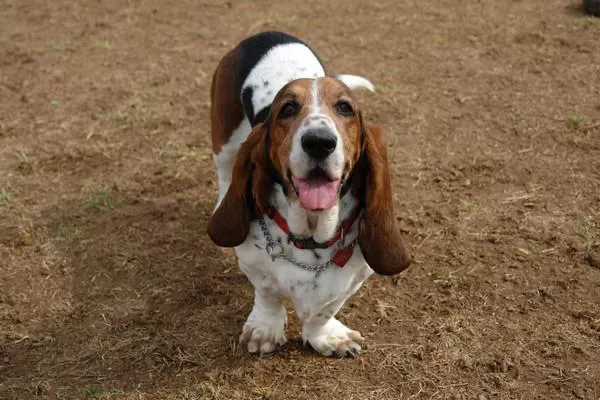Basset Hounds are beloved for their charming appearance and gentle disposition. As responsible pet owners, it’s essential to provide them with a well-balanced diet that meets their nutritional needs. One common question that arises is whether Basset Hounds can drink milk. In this article, we will explore the considerations and guidelines regarding milk consumption for Basset Hounds to ensure their health and happiness.
1. Lactose Intolerance in Dogs
Like many mammals, some dogs, including Basset Hounds, can develop lactose intolerance as they mature. Lactose is the sugar found in milk, and lactose intolerance occurs when dogs lack the enzyme lactase needed to properly digest it. This can lead to digestive upset, including diarrhea, gas, and stomach discomfort.
2. Milk as a Treat
While Basset Hounds are known to have a hearty appetite, offering them milk as an occasional treat rather than a regular part of their diet can be a safer choice. Moderation is key, and small amounts of milk as an infrequent treat may not cause issues for dogs without lactose intolerance.
3. Alternatives to Regular Milk
If you’re considering giving your Basset Hound a dairy-based treat, consider lactose-free or low-lactose options. Lactose-free milk, available in many grocery stores, is treated to break down the lactose, making it easier for dogs to digest. Additionally, there are specialized dog treats and milk substitutes available that are formulated to be safe for canine consumption.
4. Water is the Best Hydration
Water is the most important source of hydration for dogs, including Basset Hounds. While milk may seem like a refreshing option, especially on a hot day, water should always be readily available to keep your dog properly hydrated.
5. Consult Your Veterinarian
Before introducing any new food or treat into your Basset Hound’s diet, it’s a good idea to consult with your veterinarian. They can provide personalized guidance based on your dog’s specific health needs and any potential dietary sensitivities.
6.What Can’t Basset Hounds Eat?
6.1Toxic Foods
Several human foods can be toxic to Basset Hounds and should never be given to them:
Chocolate: Chocolate contains theobromine and caffeine, which are harmful to dogs. Even small amounts can cause vomiting, diarrhea, and, in severe cases, even death.
Grapes and Raisins: Grapes and raisins can lead to kidney failure in dogs. Even a small quantity can have harmful effects.
Onions and Garlic: These foods contain compounds that can damage a dog’s red blood cells, leading to anemia.
Avocado: Avocado contains a substance called persin that can be toxic to dogs and cause stomach upset.
6.2 High-Fat Foods
Foods high in fat can lead to pancreatitis in Basset Hounds. Pancreatitis is a painful inflammation of the pancreas and can result in vomiting, diarrhea, and discomfort. Avoid giving your Basset Hound fatty table scraps, fried foods, and fatty cuts of meat.
6.3 Bones
Cooked bones, especially those from poultry, can splinter and cause choking or gastrointestinal blockages. It’s safer to provide your Basset Hound with specially designed dog chews and treats that are formulated to be safe for consumption.
6.4 Xylitol-Containing Foods
Xylitol is a sugar substitute often found in sugar-free gum, candy, baked goods, and some peanut butters. Even small amounts of xylitol can cause a rapid release of insulin, leading to hypoglycemia (low blood sugar), seizures, and liver failure.
6.5 Alcohol
Alcohol is highly toxic to dogs and should never be given to them. It can cause vomiting, diarrhea, difficulty breathing, and even lead to coma or death.
6.6 Dairy Products (in Some Cases)
While some dogs can tolerate small amounts of dairy, many Basset Hounds can develop lactose intolerance as they mature. Dairy products can lead to digestive upset, so it’s best to approach them with caution or opt for lactose-free alternatives.
Conclusion
In conclusion, while Basset Hounds may have a fondness for the taste of milk, it’s important to approach milk consumption with caution. Many adult dogs, including Basset Hounds, can develop lactose intolerance, which can lead to digestive discomfort. Offering milk as an occasional treat in small amounts or opting for lactose-free alternatives can be a safer choice. Remember, water remains the best option for keeping your Basset Hound well-hydrated. Prioritize your Basset Hound’s health by seeking advice from your veterinarian before making any changes to their diet, ensuring that their nutritional needs are met in the best possible way.


